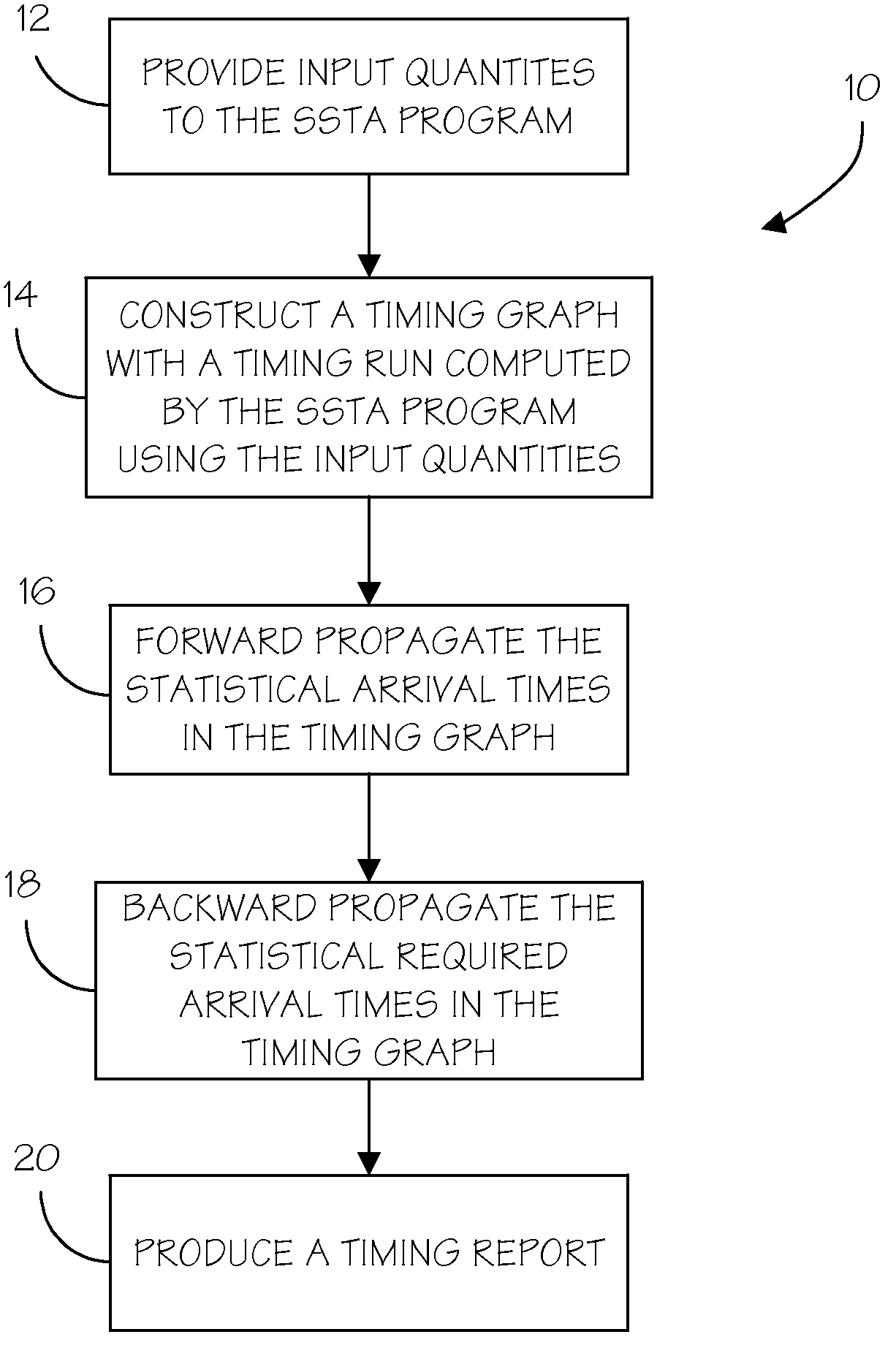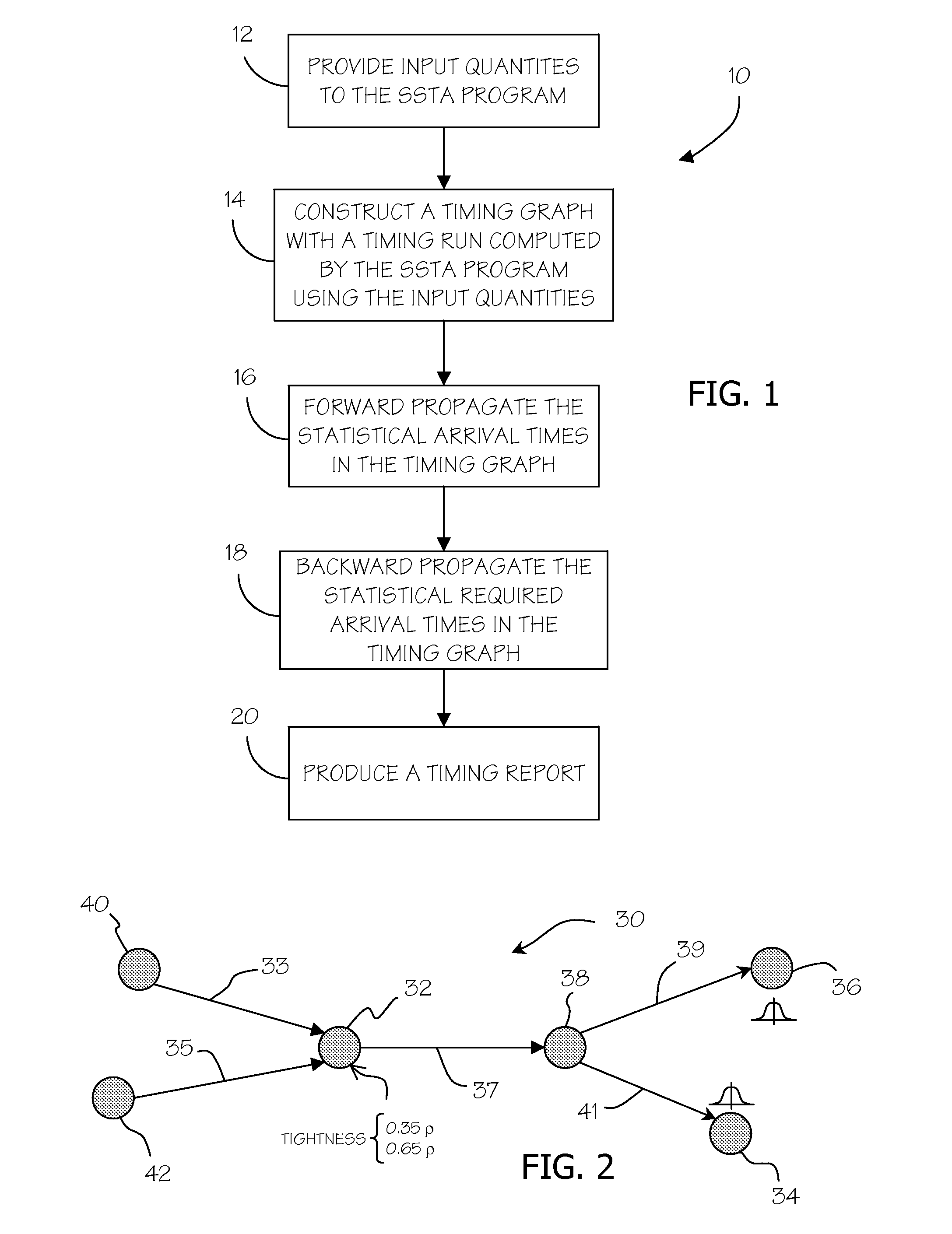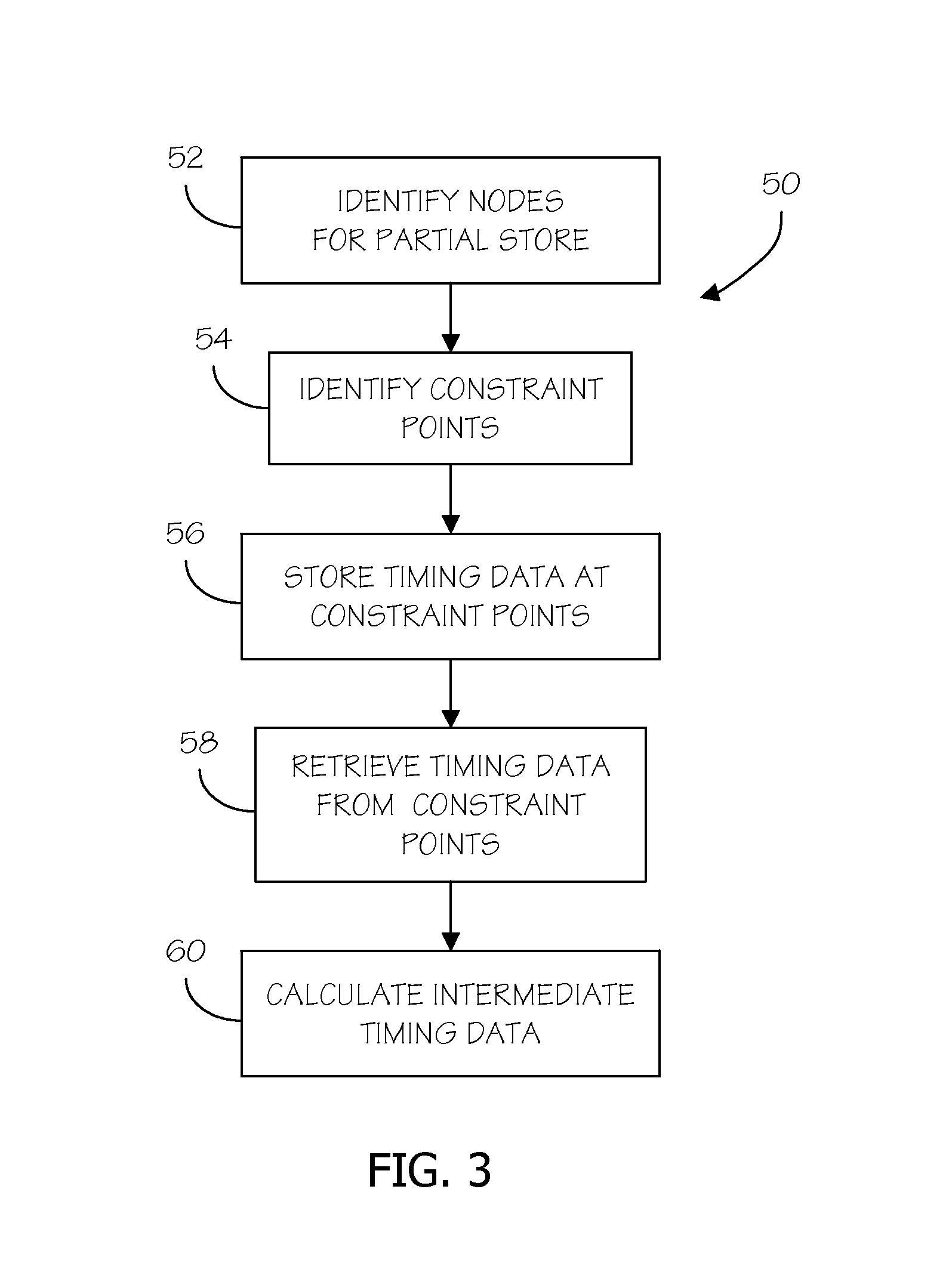Methods for conserving memory in statistical static timing analysis
a statistical static timing analysis and memory conservation technology, applied in the field of integrated circuit design, can solve the problems of inability to handle traditional (deterministic) problems, failures, and inability to cover the full process space, and achieve the effect of avoiding failures and avoiding failures
- Summary
- Abstract
- Description
- Claims
- Application Information
AI Technical Summary
Benefits of technology
Problems solved by technology
Method used
Image
Examples
Embodiment Construction
[0017]Embodiments of the invention persistently store data for selected points in the timing graph and, then, recalculate missing data as required. For example, one may choose to only persistently store ‘test point data’. Test point data is defined as points where one or more timing test exists, and forms a basis for timing validation. All other timing points may contain intermediate propagated data, which only indirectly contributes to timing validation via propagation to the test points. In traditional STA, this may only provide marginal benefit; however, in SSTA, the significant increase in data propagated results may translate to significant memory savings.
[0018]With reference to FIG. 1, a process flow 10 for a typical SSTA program is shown. In block 12, inputs are supplied to the SSTA program. Specifically, the SSTA program reads and flattens a netlist representing the structure of the circuit to be analyzed, a set of timing assertions, a set of parameterized delay models gover...
PUM
 Login to View More
Login to View More Abstract
Description
Claims
Application Information
 Login to View More
Login to View More - R&D
- Intellectual Property
- Life Sciences
- Materials
- Tech Scout
- Unparalleled Data Quality
- Higher Quality Content
- 60% Fewer Hallucinations
Browse by: Latest US Patents, China's latest patents, Technical Efficacy Thesaurus, Application Domain, Technology Topic, Popular Technical Reports.
© 2025 PatSnap. All rights reserved.Legal|Privacy policy|Modern Slavery Act Transparency Statement|Sitemap|About US| Contact US: help@patsnap.com



